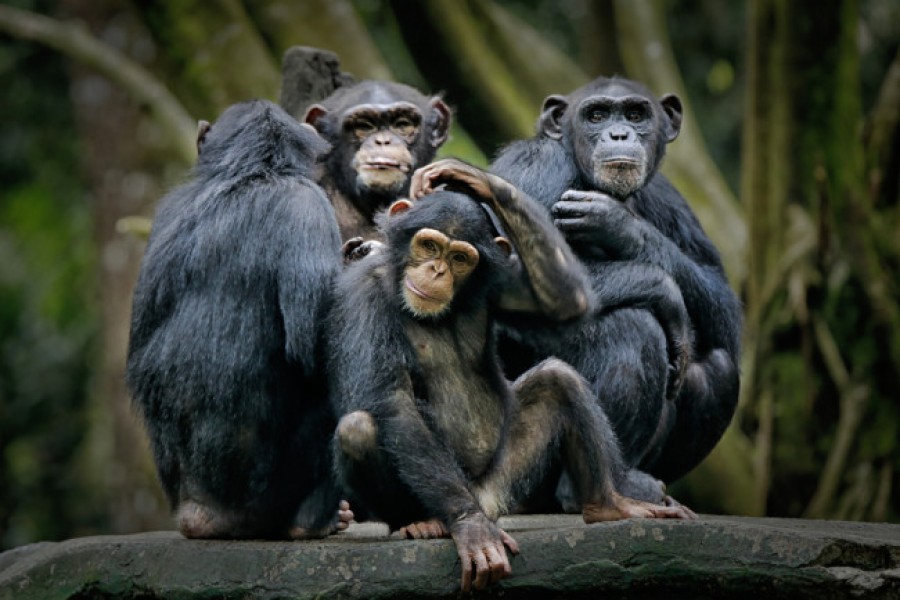Chimpanzees that use a multi-step process and complex tools to gather termites are more likely to share tools with novices, according to a study published in this week's Proceedings of the National Academy of Sciences.
The study helps illuminate chimpanzees' capacity for prosocial -- or helping -- behaviour, a quality that has been recognised for its potential role in the evolution of human cultural abilities.
Researchers in the United States examined the transfer of tools between chimpanzees during termite gathering, and compared the population in the Goualougo Triangle, Republic of Congo, with the population in Gombe, Tanzania.
Chimpanzees in both locations use fishing-probe style tools to harvest termites, but Goualougo chimpanzees use multiple, different types of tools sequentially. They also make tools from specific plant species and customise fishing probes to improve their efficiency.
At Goualougo, however, where the fishing tasks were more complex, the rate of tool transfer was three times higher than at Gombe, and Goualougo mothers were more likely to transfer a tool in response to a request.
Also, ape mothers at Goualougo most often responded to tool requests by actively giving a tool to offspring, which were never observed at Gombe, where mothers most often responded by refusing to transfer tools.
"An increased role for this type of social learning may thus be an important component of the transmission of complex tool traditions over generations," said Crickette Sanz, associate professor of biological anthropology at Washington University in St. Louis.
Understanding how chimpanzee tool traditions are passed on over generations can provide insights into the evolutionary origins of complex cultural abilities in humans, according to the study.
"Our research shows that the human propensity to assist others in acquiring complex skills may build at least in part upon capacities that we share with our closest living relatives," said Stephanie Musgrave, the paper's first author and assistant professor of anthropology at the University of Miami.
The results from this research indicated that social learning may vary in relation to how challenging the task is. During tasks that are more difficult, mothers can play a more active role, including behaviours that function to teach, according to Musgrave.


